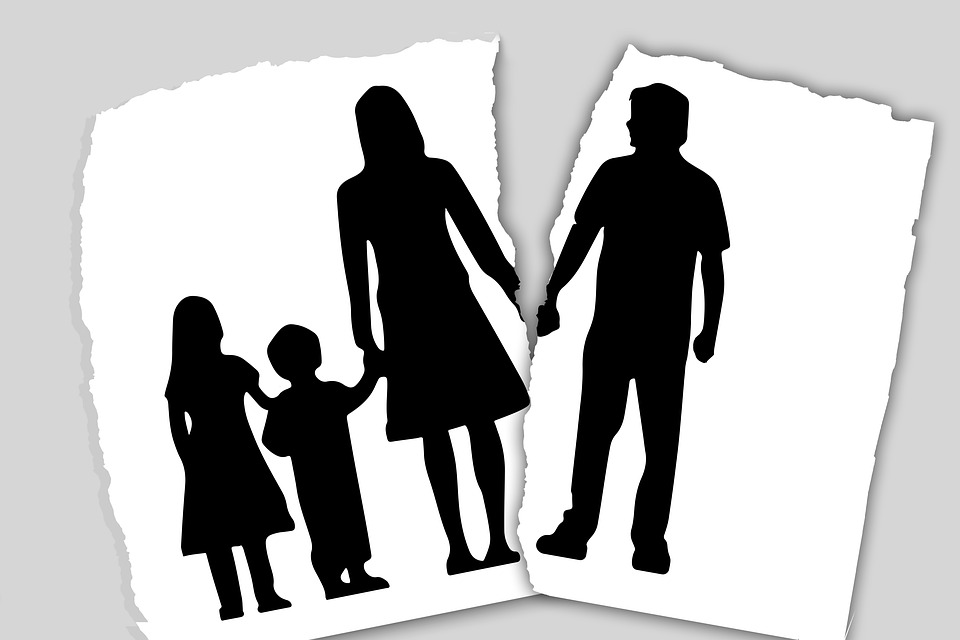Seeing their parents splitting up and going their way can be emotionally draining and confusing to many kids. When parents finally decide to divorce, children have to cope with the changes and learn to adapt to new dynamics that often burst their protective bubble. Unfortunately, some parents are too busy dealing with their emotional distress that they forget to check up on their kids and help them recognize and overcome the trauma.
Still, it doesn’t have to be that way. When going through a divorce, it’s essential to focus on them and make the whole process as painless as possible. So, if you’re having trouble reaching out to your children, here are some ways to help them go through your divorce.
Remind them it’s not their fault
Believe it or not, some children are convinced they’re responsible for the divorce. They start believing their poor grades or insignificant fights with parents are the reason their parents are splitting up, so be sure to talk to your children about the divorce and let them know they’re not at fault.
However, keep in mind that children of divorced parents can also be susceptible and hurt. Therefore, carefully explain the major contributors to your divorce. It would be best to talk to your children with your former spouse. Highlight how both of you still love them and explain that they have ultimate support from both of you.
Avoid fighting in front of the kids
Divorce isn’t a decision you and your partner suddenly make one day. Some parents can see their marriage falling apart months or even years before they decide to split up, which is why it would be best to avoid fighting in front of the children.
Raising your voice at your soon-to-be former spouse can affect your children in many ways. Witnessing fights can increase the risk of social isolation and heighten stress and anxiety in children. Although it seems impractical, pick a time and place when you’ll try to resolve conflict with your partner, such as when your children are at school or when they go to bed.
Provide stability
After you or your partner move out of the family house, your children will have to adapt and build a completely new routine. Adjusting to these new circumstances isn’t easy, which is why it is of great importance to providing stability and support when your kids are learning how to cope.
Establish structure and continuity by creating routines at each household, and spend more time with your children. Regular and honest communication can give your children a sense of stability and show them that you still love them, regardless of the current circumstances.
Apologize
Divorce is traumatic and painful, and your children are probably having a hard time understanding what went wrong. Although you can’t change the outcome and make everything work like it used to, it’s vital to apologize to your children for any pain your divorce has caused them. To overcome the difficulties, they have to understand why your marriage is falling apart, and although your apology won’t make the pain go away, it will show them that you feel their struggle and want to do anything to make them feel better.
Finalize the divorce
Getting a divorce is a long and painful process. Custody battles and division of property or debt can make the proceeding drastically longer, especially if you and your soon-to-be former spouse aren’t on the same page. So, to get a fast divorce and make it as painless as possible, both you and the other party will need reliable family lawyers who can help you speed up the process and make the final agreement.
Work with your ex
The divorce process can be very damaging for kids, which is why you and your ex-partner need to find a way to work together. For starters, negative talk about the ex can hurt the children, so talk to your ex-partner about this and agree to never talk badly about each other in front of the children.
Encourage them to express feelings
Next, encourage them to freely express their feelings, and don’t hesitate to ask for help if you don’t know how to explain your point of view. But, more importantly, both you and your ex-partner should give your children attention, love, and affection and help them find new coping mechanisms that will ease the worry and stress.
Conclusion
Divorces are tough but not impossible to manage. Keep in mind that your ex-partner isn’t an enemy and that you can both be good parents and teach your children valuable lessons if you work together.
It’s easy to get lost in your problems and forget about what others are going through. Still, it’s safe to say that separation is more traumatic to children, so do what’s best for them and don’t neglect their needs. By creating a safe space where they can express themselves and grieve without feeling judged, they will manage to recover and build a healthy relationship with you and your former spouse.
















